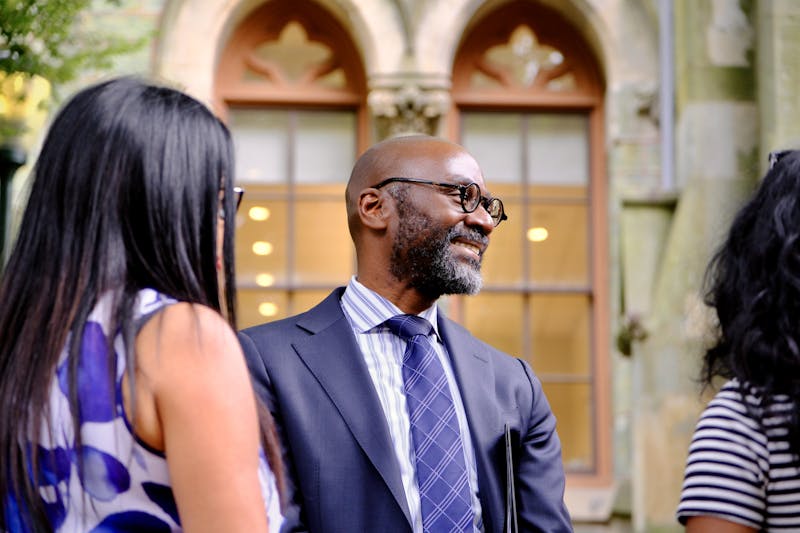
The Political and Moral Philosophy concentration was created to reflect the makeup and research interests of the faculty in Penn’s philosophy department | Courtesy of Flickr user Barta IV
Students considering the philosophy major have a new concentration option to take into account.
Philosophy majors already have the option of concentrating in humanistic philosophy or philosophy of science, both of which require 16 credits instead of the 12 required for the general philosophy major, eight of which must be taken within the philosophy department. Starting next semester, they will also have the option of concentrating in political and moral philosophy. The new concentration will also require 16 credits, but 12 of them must be taken within the department.
The political and moral philosophy concentration was created to reflect the makeup and research interests of the faculty in Penn’s philosophy department. Seven primary faculty specialize in political or moral philosophy; most departments of Penn’s size would only have two or three at most.
“I came here in 1985, and I was the only person teaching moral, political or legal philosophy,” Graduate Chair of the department Samuel Freeman said. “Gradually, in part because of [the philosophy, politics and economics major], and because philosophy courses play a role in PPE requirements … and PPE has been such a success, the deans gave us additional appointments in political philosophy and moral philosophy.”
Freeman founded the interdepartmental PPE major, which has grown to be one of the more popular majors within the College of Arts and Sciences. Despite their similar focus on political philosophy, both Freeman and Undergraduate Chair Kok-Chor Tan emphasized that the new concentration and the PPE major were meant to be significantly different.
“You have to do core philosophy classes in logic and metaphysics and history of philosophy, which aren’t requirements for PPE — this is basically a philosophy degree with a specialization in moral and political philosophy,” Tan said. “PPE is a great program, but it’s an interdisciplinary program and [is] designed as such.”
The heavy emphasis on philosophy and theory is reflected in the requirement that students take 12 courses within the higher department, which is higher than either of the other two concentrations. While this may help differentiate the concentration from PPE, it may also discourage students who are also interested in political philosophy.
College sophomore Hunter Pearl is studying political science with a minor in philosophy, but the new concentration, though aligned with his interests, isn't enticing enough for him to switch over. He's said it would also be too much to try to do both majors.
“I definitely like philosophy, but I don’t know that I’d be so interested in having to fill all the requirements for a second major,” he said.
He added that he chose to study political science instead of PPE or philosophy in part because of the simpler course requirements.
College junior Sophia Elliot also chose to study political science, despite her interest in political philosophy.
Elliot said that the “amorphous” nature of philosophy had made her wary of choosing the subject as a major, but that she feels that a concentration in more applied philosophy like political philosophy or ethics would be more useful in pursuing a career. While she is not considering the concentration due to the extensive course requirements that would make a second major difficult, she said she believes that it will be a valuable option for students.
College sophomore Alfred Joseph said that he wished the concentration had been available when he had started at Penn. Joseph is majoring in humanistic philosophy, but his main philosophical interests are in political philosophy, making him an ideal student for the concentration.
“If I could start with a blank slate, I would probably pick [the political and moral philosophy concentration],” he said. “But I’m already two years in, so it’s kind of hard to switch over.” Joseph, who is pursuing an additional major in history, feels that it would be difficult to add the concentration now, at the end of his sophomore year.
“I want to just take classes I’m interested in and see if they can count for both [the history and philosophy major],” he said. “If I come to a place where it would be very possible for me to switch over, then I will do that.”
The Daily Pennsylvanian is an independent, student-run newspaper. Please consider making a donation to support the coverage that shapes the University. Your generosity ensures a future of strong journalism at Penn.
DonatePlease note All comments are eligible for publication in The Daily Pennsylvanian.







